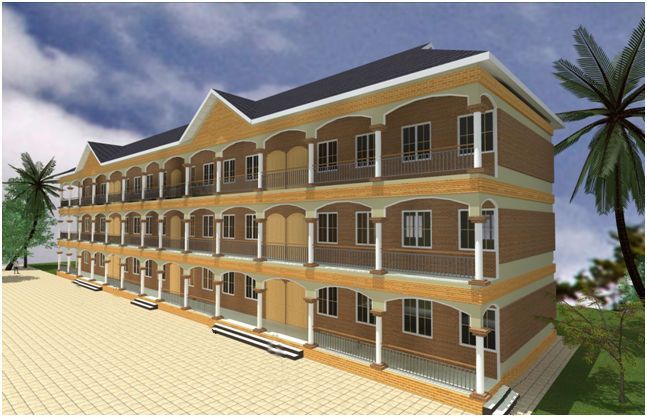School Project K1-12
Ten acres of property have been donated for the school project.
A bridge has been constructed to allow an access road to be fully accessible to the school and surrounding community.
A budget has been validated to ensure that construction of the school can be realized when we reach our fundraising goals.
A sustainability plan has been developed such that once the school is opened, they will be self sustaining. African Education Outreach will then turn their focus to the next opportune area for another school.
Our First Project:
School grades K1 – 12
Located in Abakaliki, a community in the South-east of Nigeria
Why Nigeria?
Child labor remains a major concern in Nigeria, in spite of legislative measures. Child labor is defined as work that is mentally, physically, socially or morally dangerous to children and deprives them of opportunities for education and development.
According to the International Labor Organization, the number of working children under the age of 14 in Nigeria is estimated at 15 million. The high level of diverse and tedious jobs that children execute in dangerous circumstances is particularly worrying. These jobs include being street vendors, beggars, car washers, shoe shiners and various menial jobs.
Why Abakaliki?
Abakaliki, like most towns in Nigeria, is growing rapidly.
- Current population:192,000
- Projected to reach 290,000 within 20 years.
- Ebonyi state is expected to increase from 2.5 million to a population of 4 million
- In about 20 years, about 1.5 million youth in Ebonyi state alone will need education.
This growth is also true of the neighboring Nigerian States; United Nations projects that Nigeria with a population of 177.5 million people will reach 300 million by 2040. This projected population growth underscores the urgent need to finance, build, and maintain additional schools for Nigerian youth.
Without the existence of quality schools to take care of this growing population, families in Ebonyi State will continue to struggle to survive through subsistence agriculture, on soil that is hardly productive due to over use and abuse. There are youth on these farms today who cannot read or write, and live on the farms with their parents. They are unable to practice modern and mechanized farming because they lack the knowledge to do so. Without new educational opportunities, many of these youth will end up hawking on the streets to make a living, thus perpetuating the cycle of poverty.
What Will Success Look Like?
This School will prepare students to graduate with basic entrepreneurial, technical and vocational skills necessary for jobs in agriculture, business and economics. The school will prepare students to continue on to college to study applied sciences, technology, business, and crafts, thus strengthening their self-reliance.
Graduates from our school will be distinguish not by the background they come from, but their zeal for academic excellence, character development, openness to new experiences. It will help them to recognize and appreciate all of God’s gifts and their readiness for a life of service. Hence the school’s motto is “gratis accepistis, gratis date,” Freely you received, freely you must give.
Text to Give
843-508-8806
Cost For Part Of Phase I
Students Hostel
Girls: $592,235 (½ total building cost)
Boys: $592,235 (½ total building cost)
Fencing:
$150,000
Water:
$89,869
Kitchen:
$102,761
Annual Operating Costs (Staff)
$253,163
Power Generator:
$8,000
School: Grades K1 – K12

Building Summary Phases:
School Land
Administrative Building
Convent Building
Teachers Quarters Building
Students Hostel Building
Classroom Building


